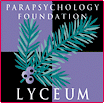 |
 |
| By Christian Gaden Jensen University of Copenhagen There are many challenges of parapsychology. It has been recommended that we develop methodologies appropriate to the areas of concern rather than assuming a “one method fits all” type of approach (Cardeña et al., 2004); to aim for theory-driven, longitudinal, qualitative and process-oriented research (Berenbaum et al., 2004); and to insist upon epistemological autonomy (Felser, 2001). Saying that we need unifying theories and integration with mainstream psychology also seems to be a parapsychological credo of today (e.g. see Krippner, 2001; Radin, 2000). I agree with these recommendations, but in a larger perspective, perhaps scientific progress within parapsychology suffers more from our reputation. Modern science today has become more antagonistic towards us than it was the 1880s (Krippner, 2001), funding is low, and new students are rare. The challenge is to achieve a better reputation and relationship with the modern sciences and with the public. It is to increase their interest in, respect for, and knowledge about our field and results. How can we do so without setting aside our current discussions, or slowing progress down? We need to know why it has not already been done. Marcello Truzzi and Carl Sagan in recent decades popularized the old dictum, “Extraordinary claims require extraordinary evidence,” meaning that science needs to provide evidence proportional to the strangeness of the claims it makes. Parapsychologists know this to be true. Results have been ignored and experimenters accused of fraud or file drawer tendencies if their data were “unbelievable” according to the current worldview. We are ridiculed by skeptics as a foolish or fraudulent “voodoo science” (Park, 2000); and numerous significant results are set aside in order to make such statements as, “all of the well-designed parapsychological experiments have produced negative results” (Bunge, 1991, p. 133; cited by Irwin, 2004, p. 256) or to boldly declare as Shermer does about “ESP, telepathy, clairvoyance … or any other forms of psi power“ that “There is not a shred of evidence that any of this is real.” (Shermer, 2003, p. 54). But why? It’s tempting to say that “they are not ready for us” to explain the skeptics’ contemptuous comments, the low funding and the fact that the number of new students is so low that some are concerned that we may not be able to sustain our discipline in the future (Irwin, 2004, p. 260). It is tempting to say that ”they are not ready for us“ and that the dominant philosophy of science and the mechanistic, deterministic worldview of the West are the major reasons why. For example, Stevenson (1990) attributed the decline in reports of macro-PK to “the inhibitory atmosphere of skepticism promoted by the materialism of contemporary society” (cited by Irwin, 2004, p. 119). The editors of Parapsychology in the Twenty-First Century (Thalbourne and Storm, 2005) argue that “it is the sociological forces at play inside and outside academia that determine [parapsychology’s] acknowledgement as a field worthy of support in every sense of that term as it applies in the university system” (cited by Storm and Thalbourne, 2006, p. 5, italics in original). Addressing “the future of parapsychology,” Dean Radin (2000) writes: “Science consists of more than data and theory. Equally important is the social context in which science finds itself. This social context determines to a very large extent not the nature of truth, but what is allowed to be studied.” Furthermore, Radin has a positive opinion about how society will come to accept our field and chooses as his theme for the presidential address how “skepticism is won over as with any other uncomfortable but true idea … because the world catches up to the idea” (Radin, 2000, p. 353–356). I believe the authors are essentially right. The socio-cultural and scientific climates are of major importance. How do we help them change? Parapsychology participates and evolves in a dynamic relationship with the surrounding culture, so it cannot be socio-cultural forces alone that determine the acknowledgement of the field. Radin states, “we must apply pressure on the societal assumptions about who we are and what we’re doing” (Radin, 2000. p. 354). Krippner argues that “psi researchers need to enter into the discourse” (Krippner, 2001, abstract). How have other controversial sciences succeeded? Founder of many sciences, Aristotle, remarked in his classic work Rhetoric, that a contemptuous utterance in its essence is an energetic manifestation of an anticipation that something is of no value. (Aristoteles, 1996, Book B, II p. 3). Therefore, an essential feature of avoiding a contemptuous debate is to try and demonstrate the value of your point of view, as opposed to try and convey its veracity. This I believe is an important point. William James, in his founding of psychology of religion, a controversial field at the time, emphasized exactly the same. He saw spiritual propositions as answers to investigations of value, meaning and significance, and existentialist judgements as answers to materialistic, ontological, and historical hypotheses. James: [They] are two entirely different orders of question from the logical point of view; and, as a failure to recognize this fact may breed confusion, I wish to insist upon the point … Neither judgment can be deduced immediately from the other. They proceed from diverse intellectual preoccupations. (James, 1902/2004, p. 17) Let me point out that I am not participating in the (also very relevant) discussion of whether we should do less research on paranormal and more on parapsychological issues. I am saying that focusing on the value of whatever research we are doing should foster a better debate with other sciences and laypeople. It should be the primary intention of our outward communication. If society does not see the value of our research, interest in and funding for it will remain the same. The more potential value others see the more likely we are to have a well-functioning dialogue, creative cooperation, a faster progressing science. Rephrasing William James provides a slogan for what I propose as our “communicative pragmatism”: By the fruits we shall show them — not by the roots! I have argued that we must focus upon demonstrating the value of our research in our outward communication. Some might argue that if we do not demonstrate the veracity of our findings, no one will ever see the value. For three reasons I believe that this is not correct. First of all, when in doubt, people tend to believe what they find to be the most valuable explanation. When presented with conflicting evidence, they tend to accept the evidence that best accords with their belief. If they find the conclusion that is drawn from the data to be “useless,” “immoral” or the like, they will probably ignore the data, accuse the scientists of fraud, and so on. Secondly, laypeople and scientists alike often engage in exploration of potentially valuable ideas without knowing whether they are true. The surge of spiritualism across Western societies demonstrates this to a large degree. In science, you only conduct research if you can see the potential value of the answer to an hypothesis. This is even more true if the hypothesis is controversial. Recognizing a potential value is what drives your interest in truth itself, or as the American pragmatist philosopher C. S. Pierce stated, “the seeking for truth [is] guided by values that cannot be reduced to objective states of affairs” (Bem & de Jong, 2003, p. 75). Finally, I view parapsychology both as a science about psychology, but also as a science through which the Cartesian dualistic worldview — the separation between res extensa and res cogitans, the objective and the subjective, mind and material — is challenged. We do so, for instance, in research on DMILS, RNG PK, and physical mediumship. Therefore, I find Hilary Putnam’s internal or pragmatic realism to be a philosophy of science that describes some of our dilemmas. Putnam famously writes: “The mind and the world jointly make up the mind and the world” (Putnam, 1981, p. xi). He also contends that mental content is not in the head but in an organism-environment relation (ibid., Ch. 2). In his famous article “The Meaning of ‘Meaning,’” Putnam, (1975) suggests that meaning and reference are not situated solely in the head, and that the correspondence between mind and world is interest-relative, and cannot be objectively or intrinsically determined. Putnam takes an intermediate position between realism and idealism, between objectivism and subjectivism. As postmodernism has made clear, “truth” is always formulated in an historical context, and “veracity” is influenced by subjective, conceptual frames. There will never be value-neutral methods, no value-neutral theory can be written. In conclusion, discussions about the credibility or virtues of parapsychology will always be clothed in fabrics of values. We must facilitate an explicit discussion of these. Public acceptance of our field does not only entail a minimum degree of commitment to a certain theoretical framework or to a research program. Acceptance entails commitment to fundamental discussions of worldviews. 1. James’ ‘empiricist criterion’: “By their fruits ye shall know them, not by their roots” (James, 1902/2004, p. 30). Aristoteles (1996). Retorik. Viborg: Museum Tusculanum. Bem, S. & de Jong, H. L. (2003). Theoretical Issues in Psychology. London: Sage. Berenbaum, H., Kerns, J. & Raghavan, C. (2004). Anomalous Experiences, Peculiarity and Psychopathology. In Cardeña, E., Lynn, S. J. & Krippner, S. (Eds.) (2004). The Varieties of Anomalous Experience. Washington DC: American Psychological Association. Bunge, M. (1991). A skeptic’s beliefs and disbeliefs. New Ideas in Psychology, 9, 131–149. Cardeña, E., Lynn, S. J. & Krippner, S. (2004). Anomalous Experiences in Perspective. In Cardeña, E., Lynn, S. J. & Krippner, S. (Eds.) (2004). The Varieties of Anomalous Experience. Washington DC: American Psychological Association. Felser, J. M. (2001). Philosophical Sensitives and Sensitive Philosophers: Gazing into the future of Parapsychology. International Journal of Parapsychology, 12(1), 53–82. Irwin, H. (2004). An Introduction to Parapsychology 4th ed. Jefferson, NC: McFarland. James, W. (1902/2004). The Varieties of Religious Experience. New York: Barnes & Noble Classics. Krippner, S. (2001). Psi and modernity in the twenty-first century. International Journal of Parapsychology, 12(1), 1–30. Park, R. L. (2000). Voodoo science: The road from foolishness to fraud. NY: Oxford University Press. Putnam, H. (1975). The meaning of meaning. In Mind, Language and Reality. Philosophical Papers, 2. Cambridge: Cambridge University Press. Putnam, H. (1981). Reason, Truth and History. Cambridge: Cambridge University Press. Radin, D. I. (2000). What’s Ahead? Journal of Parapsychology, 64, 353–364. Shermer, M. (2003). Psychic for a day — or How I Learned Tarot Cards, Palm Reading, Astrology, and Mediumship in 24 Hours. Skeptic, 10(1), 48–55. Storm, L. & Thalbourne, M. A. (Eds.) (2006). The Survival of Human Consciousness: Essays on the Possibility of Life After Death. Jefferson, NC: McFarland. Thalbourne, M. A. & Storm, L. (Eds.) (2005). Parapsychology in the Twenty-First Century: Essays on the Future of Psychical Research. Jefferson, NC: McFarland. Click here for a biography of Mr. Jensen. |
 |

|
 www. parapsychology. org |
||